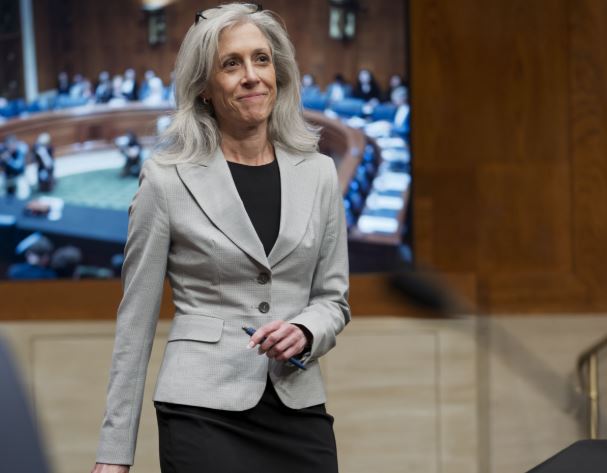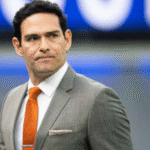
Tension between white house and CDC director: Dismissal of Susan Monarez looms
Washington: A tense standoff between the white house and the CDC erupted on Thursday after Health Secretary Robert F. Kennedy Jr. tried to fire Centers for Disease Control and Prevention CDC Director Susan Monarez and the resignation of several senior agency officials. The dispute is now in the hands of President Donald Trump, who has yet to make any public comment on the issue
The White House announced late Wednesday that Dr. Monarez had been removed from her post. However, her lawyers denied the claim, saying that Dr. Monarez would remain in the post of CDC director unless President Trump himself fires her. The lawyers insisted that Dr. Monarez “prioritized public safety over promoting a political agenda.”
Senate confirmation and the beginning of the dispute
Last month, the Republican-led Senate confirmed Dr. Monarez’s appointment, making her the first CDC director subject to Senate confirmation. Because of this, the power to fire her rests only with the President, not Health Secretary Kennedy. Senators from both parties have expressed deep disappointment over the development.
Senate Health Committee Chairman, Louisiana Republican Senator and physician Bill Cassidy, who voted in favor of Kennedy, said on social media, “An investigation by my panel will be necessary to monitor these high-profile departures.” However, he did not elaborate on this.
At the same time, the ranking member of the Senate Health Committee, independent Senator Bernie Sanders of Vermont, demanded an immediate hearing with Kennedy and Dr. Monarrez. He termed Kennedy’s dismissal attempt as “outrageous.”
Washington Democrat Senator Patty Murray, a former chair of the committee, demanded Kennedy’s immediate dismissal. Murray, who voted against Dr. Monarrez’s confirmation, said, “I was skeptical of Dr. Monarrez’s appointment, but her willingness to stand up against Kennedy’s personal mission to destroy public health makes me happy. I was wrong.”
Differences over vaccine policy and resignation of officials
According to sources familiar with the developments, the main reason for the tension between Kennedy and Dr. Monarrez was differences over vaccine policy. Dr. Monarrez, an infectious disease researcher and government scientist who has worked for administrations of both parties for more than 20 years, reportedly refused to follow Kennedy’s “orders without scientific basis.”
Amid this controversy, four senior CDC officials resigned, dissatisfied with vaccine policy and Kennedy’s leadership. These include Deputy Director Dr. Debra Houry, Dr. Daniel Jernigan, head of the National Center for Emerging and Zoonotic Infectious Diseases, and Dr. Demetre Daskalakis, head of the National Center for Immunization and Respiratory Diseases. Another official resigned separately on Tuesday. In his resignation, Dr. Houry cited budget cuts, reorganization and layoffs as the reason for the bad effect on the agency.
Kennedy’s statement and future direction
Speaking on Fox News on Thursday morning, Kennedy said, “The CDC is in a crisis, and we need to fix it. We are fixing it, even if some people no longer have to work there.” He also hinted that more changes could be coming to the agency.
Dr. Monarrez’s lawyers said she is “dedicated to science” and will not resign. Her lawyers, Mark Zaid and Ebe David Loewen, said in a statement, “This is not just a matter of one person. This is an attempt to undermine our public health institutions and politicize science.”
Senate’s role and future
The Senate Health Committee is preparing for an in-depth investigation into the matter. Senator Cassidy has indicated that his committee will review this “leadership turmoil.” On the other hand, Democrats like Senators Sanders and Murray are adopting a tough stance on Senator Kennedy’s actions. This controversy could not only affect the future of the CDC, but also have a wider impact on the Trump administration’s health policies.
Meanwhile, White House spokesman Kush Desai declined to clarify whether President Trump would fire Dr. Monarrez himself. This impasse could prove to be a turning point for the CDC’s leadership and the country’s public health policies.









